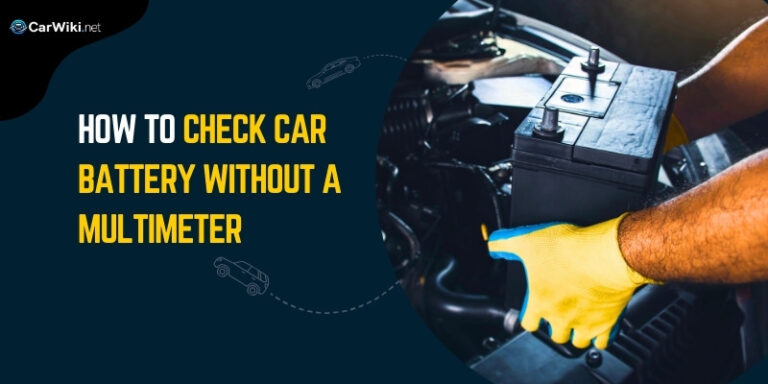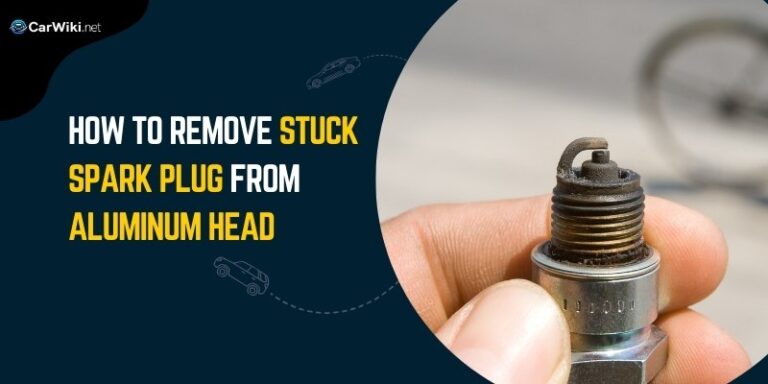Why Is My Steering Wheel Making Noise?
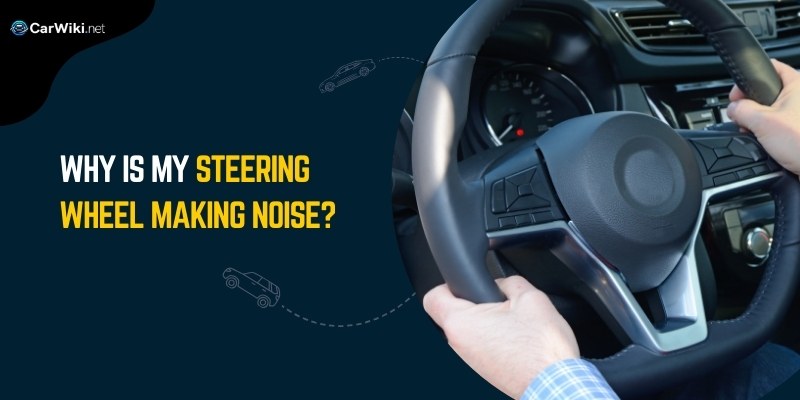
Uh oh, your steering wheel is talking back! If you’re on this page you’re probably wondering: Why is my steering wheel making noise?
Well, hopefully by the end of this article, you’ll have a clue or two about what’s making those strange noises in the steering wheel.
The symphony of your car should be dominated by the purr of the engine and the hum of the tires, not an unwelcome chorus from your steering wheel.
But don’t worry, fellow drivers! This guide equips you to decode those strange noises, diagnose the culprit, and restore your car to a peaceful driving experience.
Listening Like a Mechanic
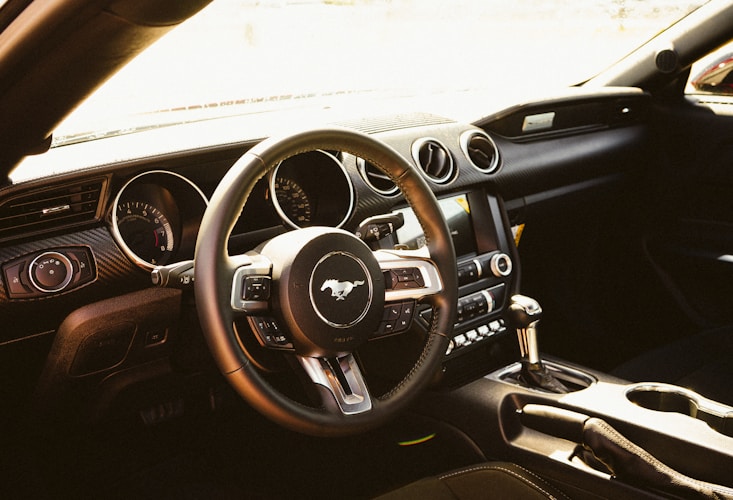
Each noise your steering wheel makes paints a picture of the problem:
- Whining: Imagine a high-pitched squeal like a leaky faucet. This often indicates a thirsty power steering system – low fluid, a worn-out pump, or a blocked filter. Check for loose belts too, as they can chime in if malfunctioning.
- Clicking or Clunking: This rhythmic beat resembles tools clanging in a toolbox. It could be caused by several suspects:
- Ball joints: These crucial components ensure smooth suspension movement, but wear and tear can make them click and clunk, especially at low speeds. Think of them as rusty door hinges that need replacing.
- Tie rods: Responsible for translating your steering wheel turns, loose or damaged ones will clunk like broken tools. Not the sound you want accompanying your drive!
- Sway bar link: Keeping your car balanced in corners, a worn sway bar link might knock when you turn, like a loose car part bouncing around.
- Creaking or Groaning: Picture an old door opening with rusty hinges. This could be the sound of dry and overworked components:
- Steering column parts or suspension joints: Without proper lubrication, they’ll creak and groan like neglected machinery needing an oil change.
- Bushings: These rubber cushions wear out over time, leading to creaks, especially over bumps. Think of them as aging car parts struggling to function properly.
- Grinding or Scraping: Imagine nails on a chalkboard. This harsh sound signals potential trouble for some key players:
- Steering rack: This translates your steering movements, but wear and tear can make it grind. Not exactly a sound you want to hear regularly.
- Bearings: Worn bearings in the steering column or suspension can also grind or scrape, like a car part rubbing against metal. Time to fix the issue!
Beyond the Noise: Additional Clues

When does the noise join the party?
Does it start when you turn, at certain speeds, or over bumps? Identifying the timing can help narrow down the suspects.
Are there any other symptoms?
Does the steering wheel feel loose, stiff, or vibrate? These additional clues can be helpful in the diagnosis.
What kind of car is making this noise?
Different models have their own common quirks and gremlins. Consulting your car’s manual or online forums specific to your vehicle can be like having a friendly mechanic in your pocket.
Taking Action to Stop Steering Wheel Noise
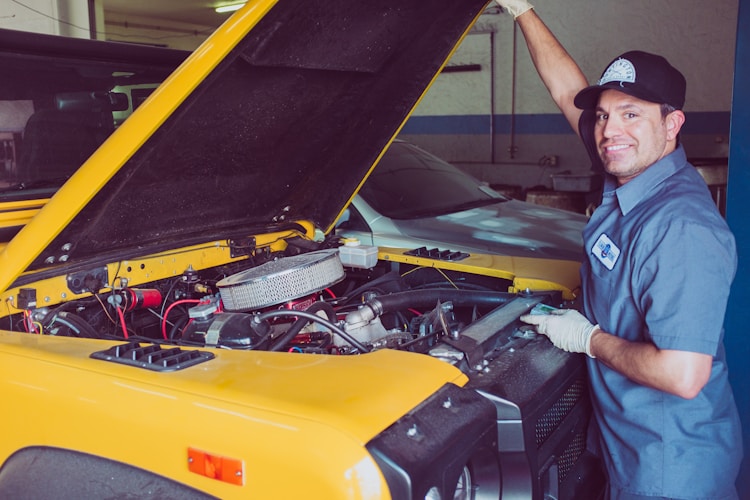
Pre-Check
Before diving into major repairs, do a quick visual inspection under the hood and around the wheels.
Look for leaks, loose parts, or any visible damage that might be causing the racket. Sometimes, a simple fix like tightening a loose bolt can solve the problem.
Consult the Manual
Your car’s manual is your trusted reference guide, offering troubleshooting tips and maintenance schedules specific to your model.
Think of it as a roadmap to understanding common issues and potential solutions for your car’s specific parts.
Seek Professional Help
If the noise persists or you’re unsure about the cause, don’t hesitate to seek professional help.
A qualified mechanic has the expertise and tools to diagnose the problem accurately and recommend the right repairs. Remember, early intervention can prevent further damage and save you money in the long run.
Prevention is Key
Just like regularly servicing your car keeps it running smoothly, regular maintenance is the key to keeping your car’s soundscape quiet and pleasant. Here’s how:
Be a Fluid Fanatic: Regularly check and top up power steering fluid according to your car’s manufacturer recommendations. Fresh fluid keeps the system happy and prevents that unwanted whining chorus.
Scheduled Service, Sweet Service: Get your car serviced regularly for a comprehensive check-up.
Think of it as soundproofing your car for a smooth and quiet ride. This allows mechanics to identify and address potential issues before they turn into major problems and unwanted noises.
Why is My Steering Wheel Making Noise: Final Words
Remember, ignoring steering wheel noises can lead to bigger problems down the road.
By addressing them promptly and following a regular maintenance routine, you can ensure your car stays problem-free and delivers a truly harmonious driving experience, free from any unwelcome tunes.
Related articles:
- Maintaining an older BMW
- How to Check Car Battery Health Without a Multimeter
- Benefits of Tier Rotation
